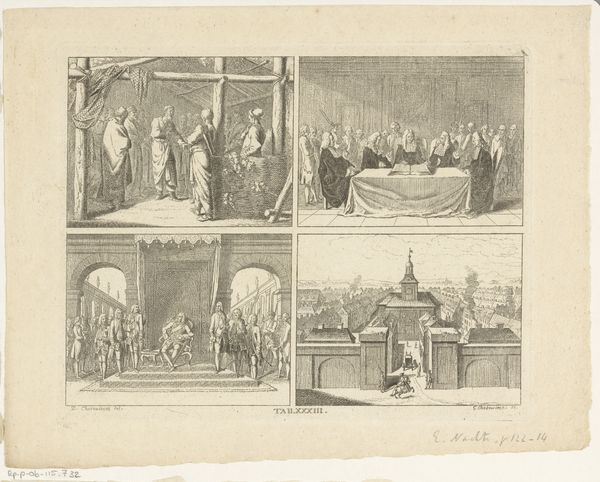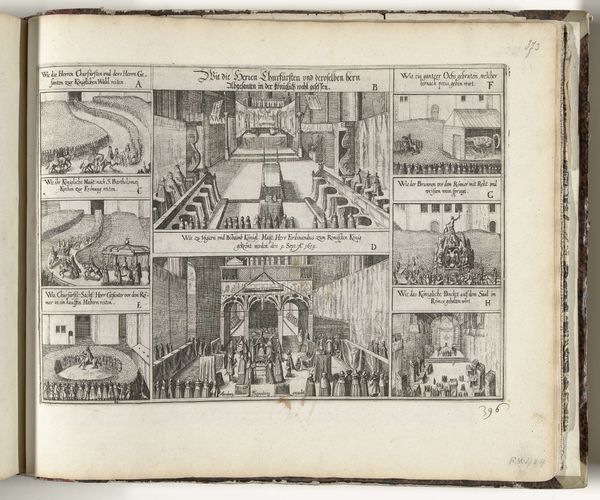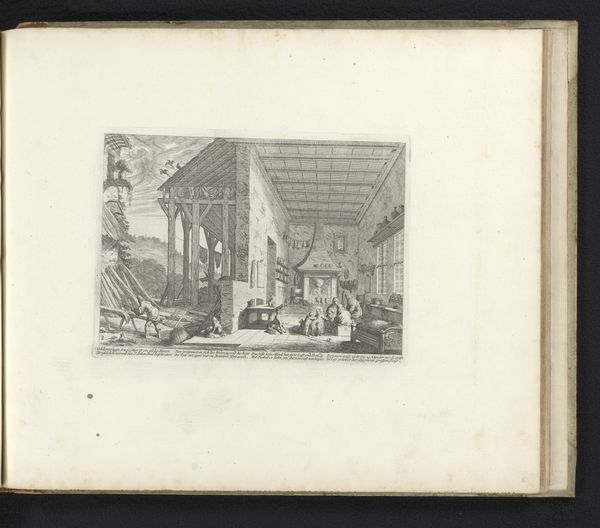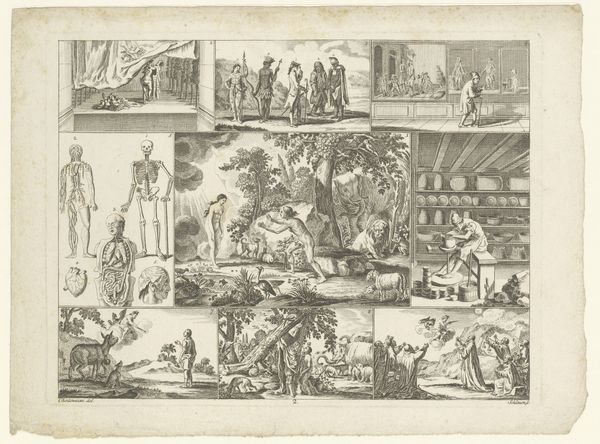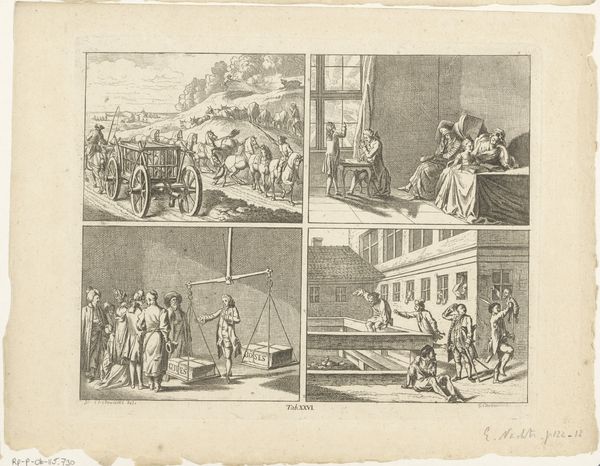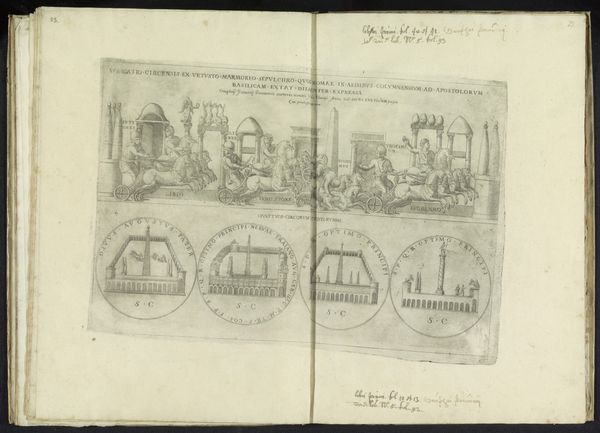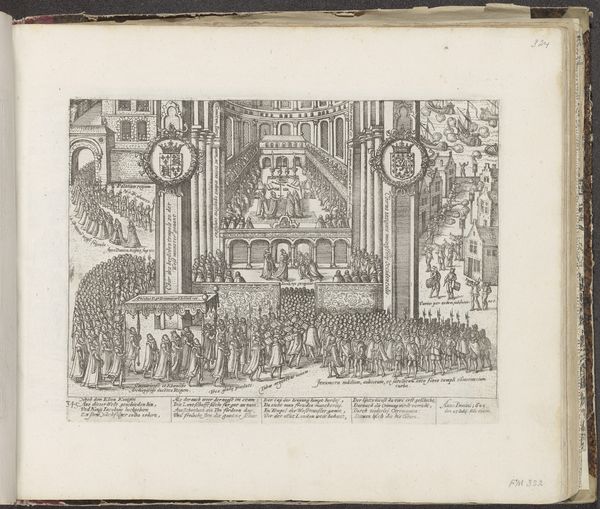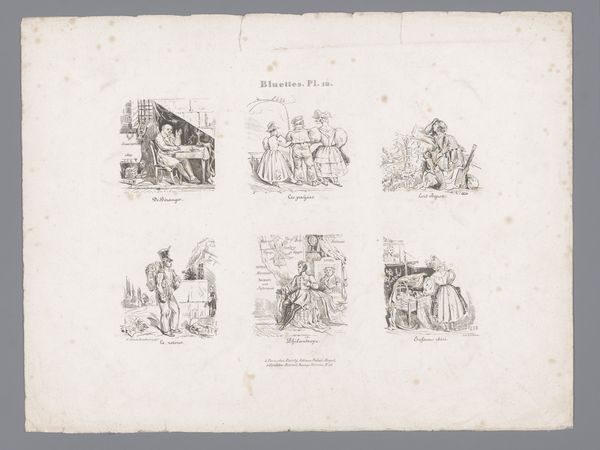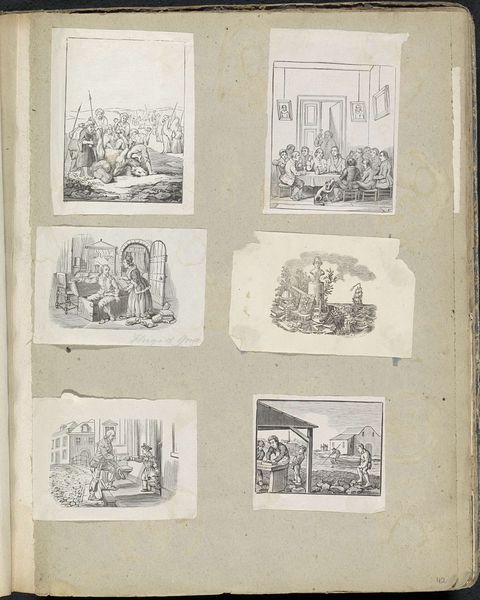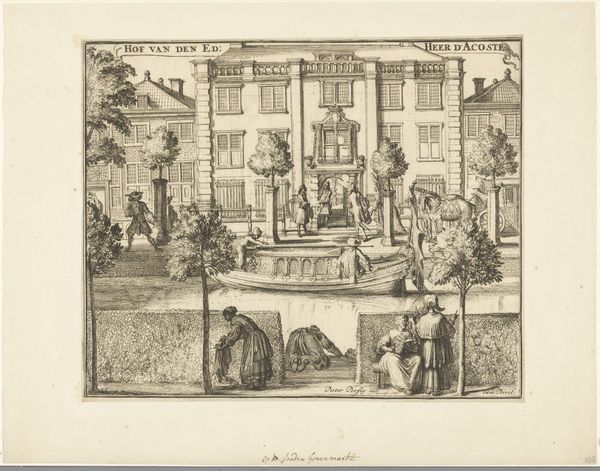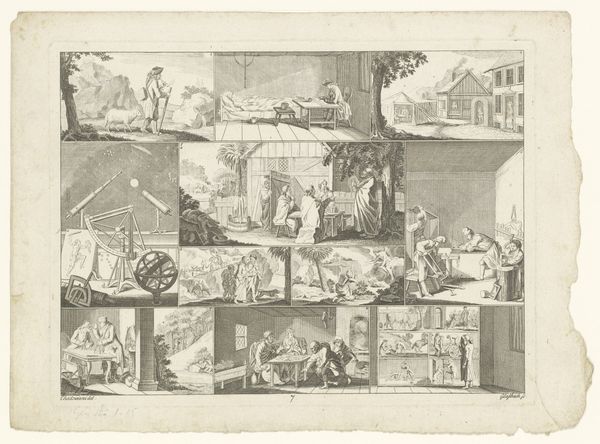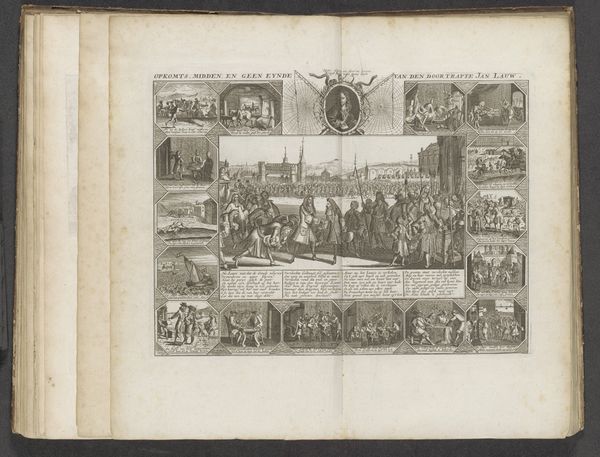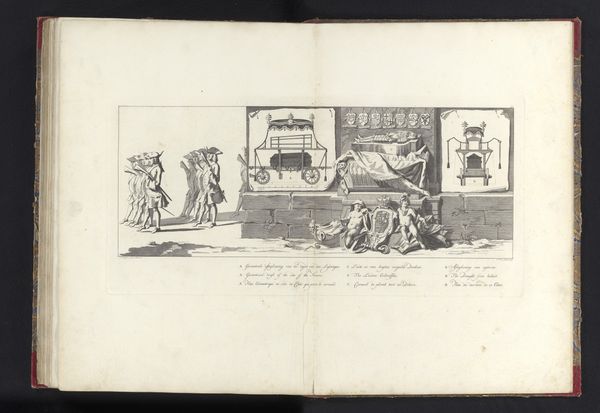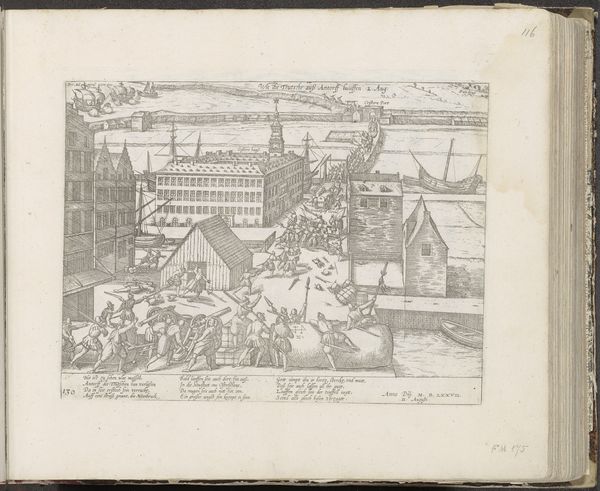
print, engraving
#
neoclacissism
# print
#
form
#
line
#
genre-painting
#
history-painting
#
engraving
Dimensions: height 186 mm, width 230 mm
Copyright: Rijks Museum: Open Domain
Editor: This is "Encyclopedische voorstelling van krachten op verschillende wijzen uitgebeeld," from 1774, a print by an anonymous artist. What strikes me most is how meticulously organized it is, like a diagram of human and animal power. How do you approach a piece like this? Curator: I find it fascinating from a formalist perspective. Observe how the artist meticulously divides the composition into neat, rectangular panels, each presenting a discrete study of force. Notice the use of line – it's precise, almost mathematical, aiming for clarity of form over any illusionistic depth. Editor: It’s true, the lines are incredibly precise, even for a print. The textures almost feel clinical. Curator: Exactly. Consider the emphasis on geometric shapes: circles, squares, cylinders. These forms aren't merely representational; they're structural elements dictating the visual rhythm and intellectual framework. Do you see a progression, perhaps a thesis unfolding across the different rows and columns? Editor: It's as if the artist is categorizing different ways forces are applied. Like a scientific catalogue. Does the lack of expressive figures detract from its value as art? Curator: The human figures serve more as visual components than individualized subjects, which makes it closer to design than art. Their presence defines the relationships within each panel’s mechanical construction, creating a systematic exploration using forms and lines alone. Editor: I never thought about art this way, how shapes and composition are at the core of its purpose. Curator: By analyzing its intrinsic visual language, we move beyond simply what is depicted and understand how art communicates. I think this approach reveals its historical importance and artistic ambition.
Comments
No comments
Be the first to comment and join the conversation on the ultimate creative platform.
